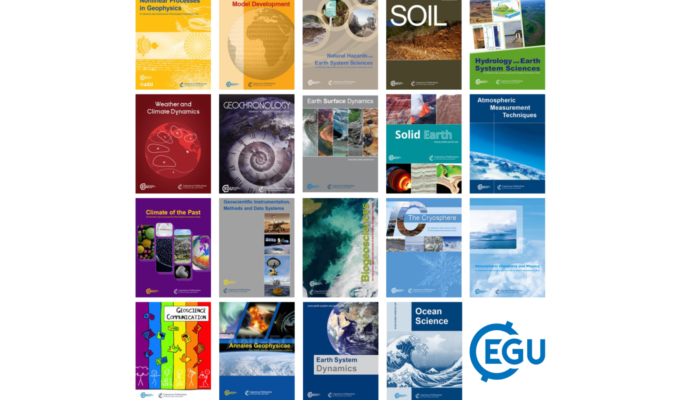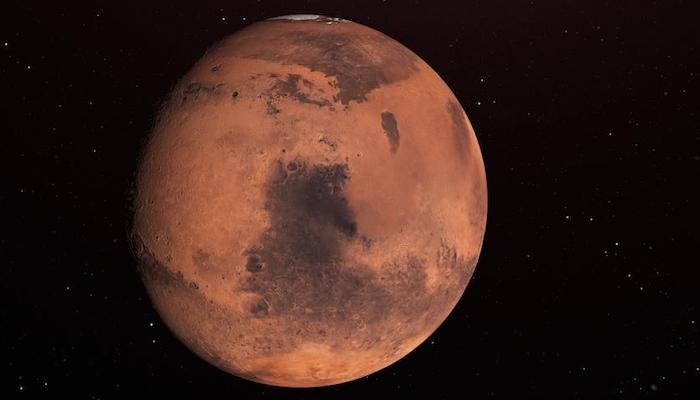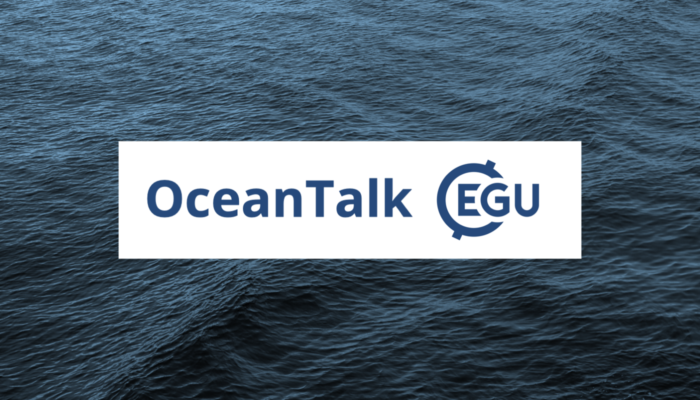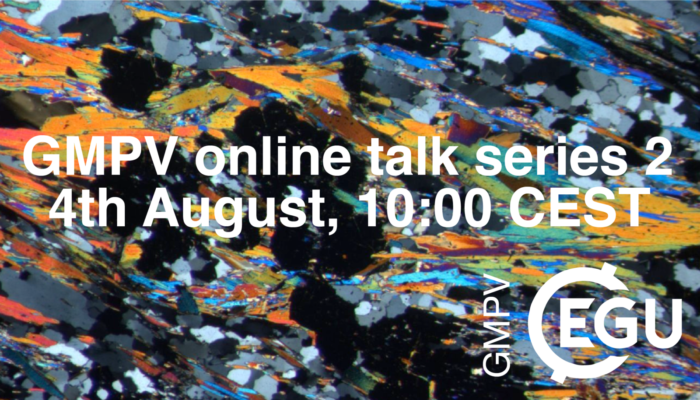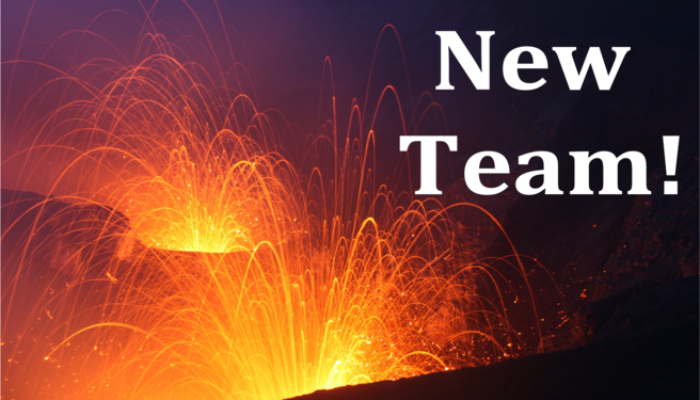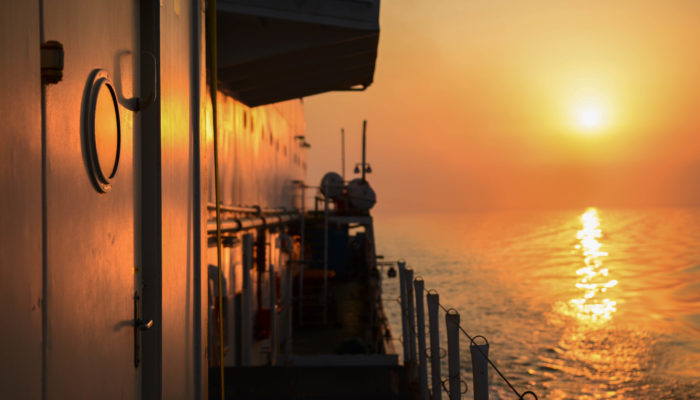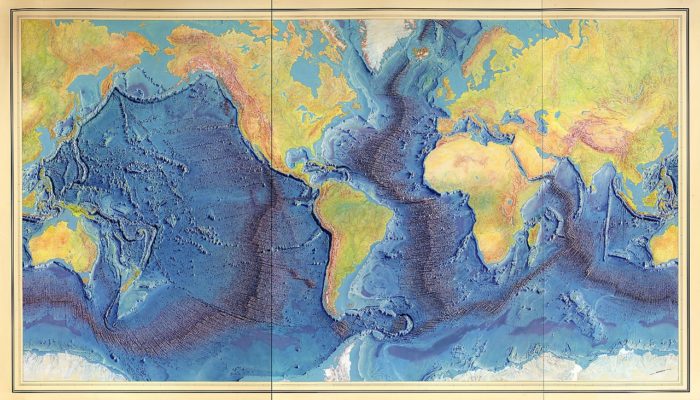Each month we feature specific Divisions of EGU and during the monthly GeoRoundup we will be putting the journals that publish science from those Divisions at the top of the Highlights roundup. For July, the Divisions we are featuring are: Geodesy (G), Ocean Science (OS) and Tectonics and Structural Geology (TS). They are served by the journals: Geoscientific Model Development (GMD), Ocean Science ...[Read More]
Geodynamics
InSights into Mars’ interior
This week Ana-Catalina Plesa, Junior Research Group Leader at the German Aerospace Centre (DLR) in Berlin/Germany takes us on a journey to Mars. Enjoy the read about how spacecraft observations and numerical models provide InSight into the deep enigmas of the “red planet”. Over the course of its evolution, Mars has accumulated heat in its interior arising from the planet’s formation, differentiati ...[Read More]
Ocean Sciences
OceanTalk with Frédéric Le Moigne
Frédéric Le Moigne has been awarded the 2020 Outstanding Early Career Scientist Award for the Division of Ocean Sciences and he agreed to be interviewed for our first blog post on the new Ocean Sciences blog. Frédéric can you tell us about your background and education? I was born and raised on the Atlantic coast, near the bay of Brest in Brittany, western France. In Brittany the ocean is an impor ...[Read More]
Ocean Sciences
Welcome to the new Ocean Sciences Division blog!
Hello and welcome to the blog of the EGU Ocean Sciences Division! We are very excited to launch this new blog and finally join the EGU Blogsphere. Here we provide content of interest to the division and especially to the Early Career Scientists. This blog aims to spread our fascination for the ocean and share different aspects of ocean research. We will feature different types of blog articles, in ...[Read More]
Geochemistry, Mineralogy, Petrology & Volcanology
GMPV ECS online talk series 2: 4th August
We’re back! After a short break, the Geochemistry, Minerology, Petrology and Volcanology division’s early career scientists talks will return on Tuesday 4th of August at 10am CEST. We have another four fascinating talks, covering a broad range of disciplines, methodologies and field locations! • Artur Ionescu (Babes-Bolyai University) – “Fluid geochemical studies in the Balkans: from planning up t ...[Read More]
Geochemistry, Mineralogy, Petrology & Volcanology
That’s us! – The new GMPV ECS Team 2020/2021
Usually our blog posts are about fancy minerals and cool science, but today we want to use this platform to introduce you to our new GMPV ECS team for the term 2020/2021! First of all, what exactly are we doing here in the GMPV ECS team and why are we even existing?! – Well, the GMPV ECS team is a group of young researchers (themselves being ECS), who want to support young scientists at the beginn ...[Read More]
GeoLog
Imaggeo On Monday: Sunset in the Arabian basin
We know the topography of the moon better than the Earth’s seafloor, so we need to keep studying the ocean, and, for me, going to sea is the best way. Only twenty percent of the seafloor is already mapped (see the Seabed 2030 Project), leaving eighty percent of our ocean unmapped, unobserved, and unexplored. This is why ocean going research is fundamental, not only for seabed mapping, ...[Read More]
GeoLog
GeoTalk: Hali Felt, author of ‘Soundings: The Story of the Remarkable Woman Who Mapped the Ocean Floor’
This month for GeoTalk, as we approach the centennial of Marie Tharp’s birth next week, we were lucky enough to speak with the author of her biography ‘Soundings: The Story of the Remarkable Woman Who Mapped the Ocean Floor‘; Hali Felt. Hali has a Master of Fine Arts degree from the University of Iowa and has completed residencies at MacDowell, the Sitka Center for Art and Ecolog ...[Read More]
Geodynamics
The Sassy Scientist – Of Codes And Cares
On the matter of code choices, Alexa could have asked Siri, but instead chose an old-fashioned medium of enquiry compatible across all operating systems and wrote in to ask: Should I perform my research with an in-house code, an open source code or a commercial code? Dear Alexa, As a famous novel does not quite begin, it is a truth universally acknowledged that a geodynamicist in possession of a g ...[Read More]
Geodynamics
What is FAIR for Geodynamics?
A very important part of science, which is getting more and more attention, is how to share and manage our data. This week, Adina E. Pusok, Postdoctoral Researcher at the Department of Earth Sciences, University of Oxford, shares thoughts and tips on how to make our science fairer. So, what is FAIR for Geodynamics? This is a big question! I would say that what is fair for geodynamics is fair for a ...[Read More]

